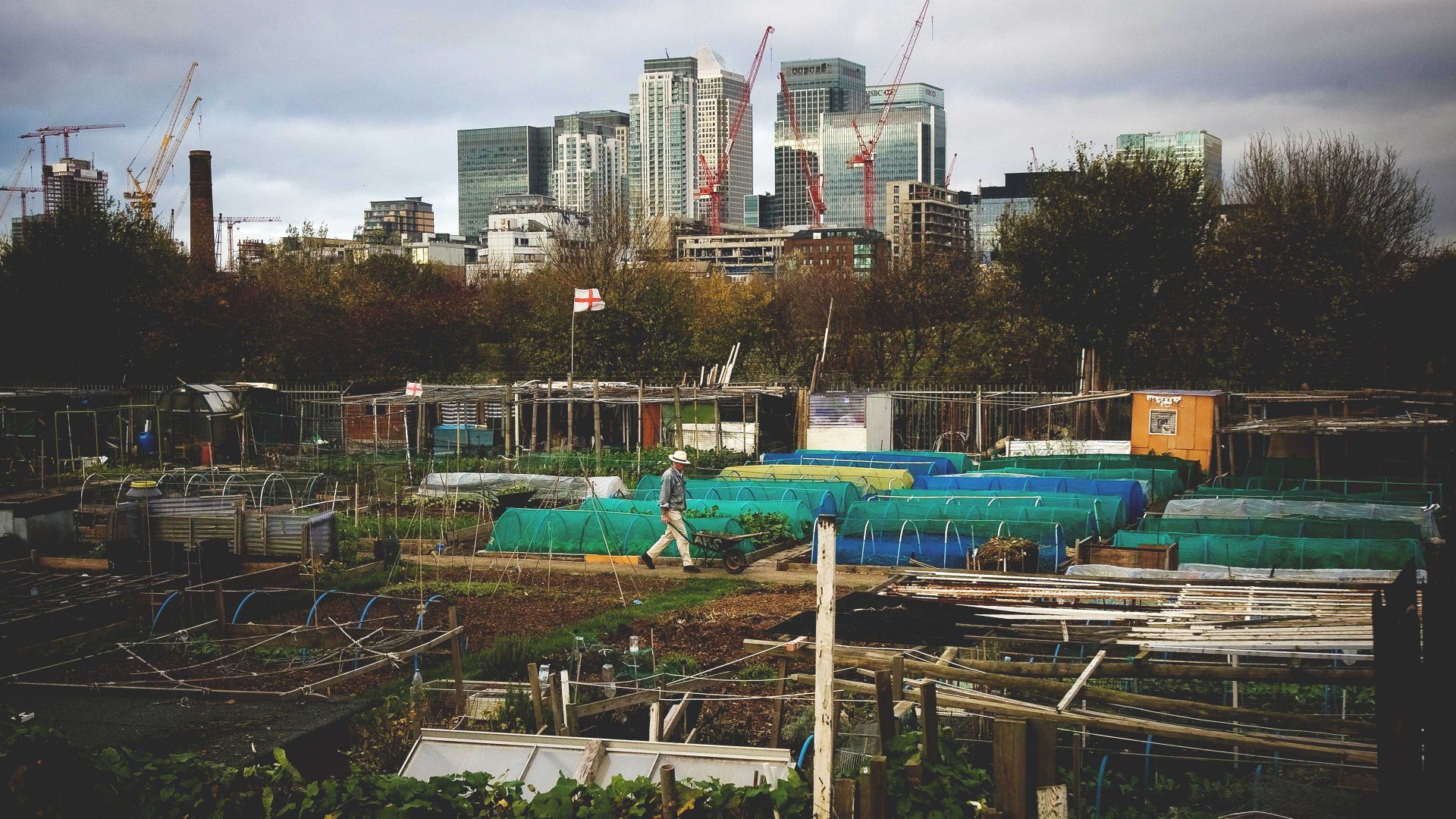As he unlocked the high, battered metal gates and swung them open with a scrape and a screech, Anil told me his story: he’d emailed the Association when he was 13, which was immediately after he’d seen this extraordinary vista for the first time – an otherworld, unrolling from behind the stage sets of the suburban houses along the high road opposite the block of flats where he still lives.
He saw then what I did the other day: a strange strip of rus lain out in the urb; so divided up, dug over, and bedizened with huts and shacks; dappled with ponds, and studded with water butts, that it appears as if a miniature section of some Tuscan hillside has been cut out, cake-wise, and mysteriously transplanted to the ’burbs of deep south London, by reason of some utterly quixotic act of terraforming, undertaken by a tech billionaire who’s realised he and his own are never going to escape the sweaty embrace of overheating earth, and would be better off contenting themselves with.
An allotment.
A decade later, Anil got an email back from the Association – and a few days later he took possession of his own plot. He told me it had been a lifesaver for him: a source of great solace for a young man dealing with losing a parent, together with all the complexities of his own very cosmopolitan, Asian-African-European cultural heritage. And also, the place where, through his gardening, he’s discovered a form of engagement that goes beyond mere sloganising and ethical offsetting of one form or another, and towards a deeper understanding of the environmental crisis, and its implications for consciousness in all its biological forms.
His allotments, which end in a mid-distant sfumato of fencing and old-growth woodland, have their own rich mulch of micro-cultures: the Portuguese dominate the Association, and basically do as they please – many of them amassing more than one allotment, and farming the resulting plots for commercial gain. According to Anil, a significant proportion of the fruit and veg seen on sale at corner shops throughout the ’burbs are in fact the greenest possible produce imaginable, given they’re sourced entirely locally.
If not free of the taints of pesticides and chemical fertilisers. Anil, by no means a loyalist himself, is nonetheless a soil purist such as would gladden the King: aiming to completely leech his own plot of any chemicals, and return the earth – as much as possible – to its productive state as a living biota, he never adds or removes anything, only allows it – and himself – to abide. He showed me a plot cultivated by a friend who’s followed the same policy, and even in late November, there was still a veritable cornucopia of greenery.
Some tend allotments to reconnect with farming lives they abandoned half a world away – others try and get away with growing cannabis, and Anil says at least one stoner gets exiled for this every year. Down beyond the arterial road there’s a big set of allotments where British-Asian folk now predominate. With 10-year wait times for plots – extended yet more by the massive demand triggered by the pandemic – such ethnic concentrations are evidence, suitably enough, of greater rootedness on the part of immigrant groups.
Of course, when I was a kid, allotments were a kind of cliche: strictly for old-mannish types to potter around in, engendering giant marrows to compensate for their own erectile dysfunctions. Another friend who has an allotment in north London tells me she often sees Jeremy Corbyn heading home to Islington from his little plot: it’s a suitable form of exile for the erstwhile revolutionary.
Because allotments were as intrinsic to British lower-middle-class and working-class life as the suburban house. And if the semi was the sort of castle contrived by Mr Wemmick in Dickens’s Great Expectations, then the allotment was its demesne; those mundane potterers, therefore, had as much right to the pastoral as Gray’s elegist who lies contemplating humanity’s follies, as: “The curfew tolls the knell of parting day / The lowing herd wind slowly o’er the lea / The plowman homeward plods his weary way /And leaves the world to darkness and to me.”
In German cities, so called Schrebergartens burgeon and ramify into little worlds – their lessees, all apartment-dwellers, of course, are allowed to build small cottages on them and stay there for protracted spells. Being German, standards of tidiness are high, while evidence of effort is everywhere – such that to ride the S-Bahn in Berlin, and float above the outskirts, is to traverse many of these tiny realms, as if the city were itself a harmonious world entire. If only.



